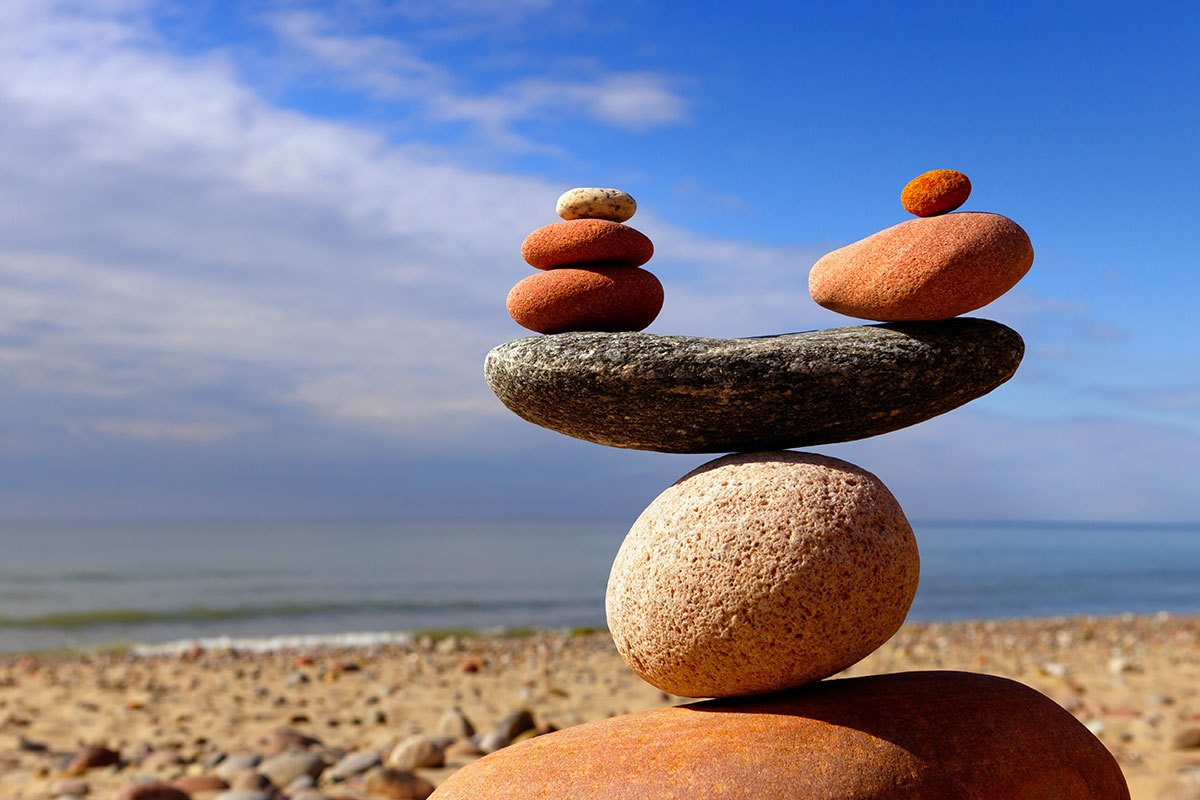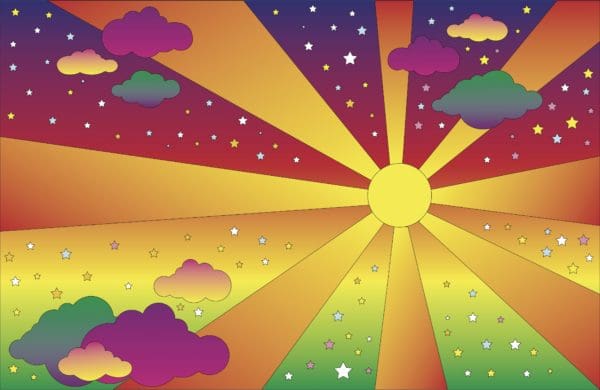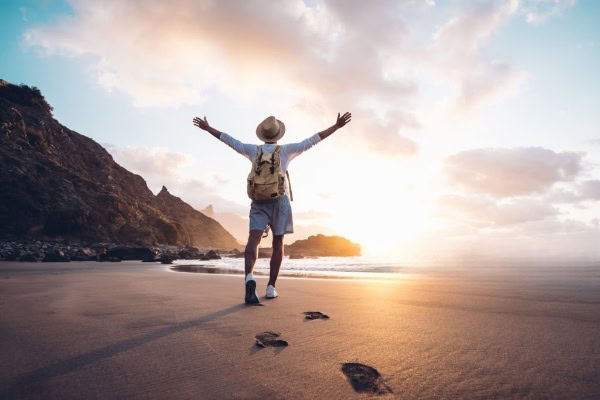Interest in psychedelic substances and therapies is at an all-time high, but some questions remain: what can psychedelics do for humanity, and can they be integrated into modern society? How can we engage with these powerful compounds and the complex phenomena they elicit, while maintaining respect for and solidarity with the indigenous persons from whom these traditions arise? Can psychedelics help people heal and in turn help heal our spaceship, earth?
What is reciprocity?
The word for reciprocity in the Quechua language is Ayni, meaning “today for you, tomorrow for me.”
This idea of giving back and sharing/caring for each other is seen across many different indigenous cultures and traditions. Reciprocity is not only about mutuality with each other, but also with the plants, animals, and our planet. We can also practice Ayni in our relationship to psychedelics and the cultures that they come from.
Bringing reciprocity to the forefront of conversations in the psychedelic world will help us embody the truth of our connection to each other and all things. Many of us are searching for community, connection, meaning, happiness; something that modern society and the outside world often fall short of. As we turn to these medicines for support, let’s also consider how we can extend our support to the cultures that have stewarded these medicines for millennia and the planet at large.
How to Engage in Psychedelic Reciprocity
Here are some suggestions for engaging in meaningful reciprocity. It is by no means an exhaustive list.
Solidarity, not charity. Many indigenous peoples’ way of life is crucially threatened by climate change, globalization, and colonialism. You can use your privilege to help preserve the autonomy of indigenous cultures and support the roots of the psychedelic movement.
Offer financial support, especially to indigenous-led projects and organizations, and those that have meaningful relationships with indigenous and traditional plant medicine communities. Stand in solidarity through activism and advocacy, not charity or pity.
Check out this list of foundations and initiatives that are engaging in sacred reciprocity.
Decolonize. Dr. Michael Yellowbird defines decolonization as “…the restoration of cultural practices, thinking, beliefs, and values that were taken away or abandoned (during colonization) but are relevant and necessary for survival and well-being.”
Decolonization involves understanding and acknowledging indigenous history and how colonization impacted indigenous peoples. It is not about settlers going back to where their ancestors came from, or power structures being flipped, but about supporting indigenous sovereignty and the recovery of indigenous cultural practices that were lost during colonization.
Decolonization must be done in relationship and consultation with indigenous communities; it can not be undertaken by settler people alone.
Lorna Liana, CEO of Entheonation, describes some of the challenges of decolonization in a capitalist world. “In a conversation about whether or not it made sense to slow down the pace of my business, a colleague sent me this article on The Characteristics of White Supremacy Culture.
It’s true that hustle culture is an aspect of colonialism – we see this in the way that new psychedelic companies are positioning themselves to seize market share and launch minimal viable products in a Ready, Fire, Aim approach that is normalized in the world of entrepreneurship.
Sure it can be said that slowing down business would be a form of decolonization, but that may not be financially viable in a capitalist world where you have fixed financial overhead.
Every month that goes by, you’re burning more cash and that doesn’t go away. The slower you take to get your product out of the door, the more cash you burn, the more expensive it is for you as the business owner. This is what many people who have never been business owners don’t understand – there is a cost to capital over time. Debt gets bigger, profit gets smaller. So slowing down isn’t an option for so many businesses to stay financially viable.
In my opinion, decolonization of one’s way of doing business within an entire capitalist system can be difficult. For many psychedelic companies, the most viable decolonization leverage points are creating a more inclusive culture and engaging in reciprocity.”
Support universal access. Many people could benefit from psychedelic healing but don’t have the resources to pay for or access these modalities. Work with psychedelic facilitators who offer a sliding scale, ask about if they do pro-bono or reduced rate work for BIPOC communities, LGBTQIA+ people, disabled people, or people with limited financial resources.
Stand for what you believe in. Should corporate entities become involved in the field of psychedelics? Should a company be able to patent a psychedelic, or gain a monopoly in an area of the field? Follow Psymposia to learn more about the corporations from extractive industries that are interested in psychedelics as their next way to get rich. Ally with other people and stand together against corporate ownership of psychedelics.
Love your mother (earth). As you receive healing and growth and valuable information from these journeys, consider how you can return love to our planet. Whether it’s getting involved in climate justice activism, donating to a conservation initiative, or standing in the way of a pipeline, leverage your privilege to stop the destruction of the earth’s biodiversity and the plundering of natural resources. And yes, you should probably cancel your Amazon Prime subscription.
Know your history. Has your life been profoundly changed by psychedelic or plant medicine work? Take time to learn and sit with the real history of ayahuasca, psilocybin mushrooms, peyote, and other plant medicines. What many people don’t realize is that the mainstreaming of these medicines often involves theft, deceit, greed, and oppression along the way.
For instance, a banker and amateur mycologist named R. Gordon Wasson traveled to Oaxaca, Mexico in 1955 and met Maria Sabina, a Mazatec shaman. She introduced him to the sacred psilocybe mushrooms that grow in that area, which she used in her healings of sick people in her village. Wasson told Sabina that he wanted to take the mushrooms to meet God. She told him that that was not what they were for; that the mushrooms were to help cure sickness. Wasson lied and made up a story so that Sabina would give him the mushrooms. She obliged.
Although Sabina asked Wasson not to share his experience with the mushroom or share her photo, he wrote about it extensively in an article for Life Magazine and several books. Wasson also sent some mushroom samples off to Albert Hofmann, the father of LSD, who extracted psilocybin from them.
This deception marked the introduction of psychedelic mushrooms into western society, and ultimately, tragedy for Maria Sabina. The psychedelic tourism that the magazine article spawned permanently changed the town of Huautla where she lived; major disagreements took place which ultimately led to Maria Sabina’s house being burned down. She moved to the outskirts of town, and eventually passed away in poverty.
Ayahuasca also has a complex and tragic history. Many ayahuasca traditions were wiped out during conquest, disease, the Rubber Boom, the forcible conversion of indigenous people by missionaries, and more. The history of peyote is intertwined with the genocide and forced assimilation of native peoples on the North American continent.
As an act of reciprocity, learn the real and often frightening history of plant medicines and respect the requests of these communities about the use of their sacraments.
Listen to indigenous people who have stewarded these plant medicine traditions. The decriminalization of naturally occurring psychedelics in Oakland, CA sparked a heated conversation, as the Native American Church was not included in the decision to include peyote in Decriminalize Nature brand images and messaging.
As the world faces a staggering opioid crisis, ibogaine is high in demand for its ability to address addiction. At the same time, iboga is endangered. Some people have expressed concern about illegal poaching and the practices of extracting ibogaine from the iboga plant and ceremony.
From an article that describes the perspectives of some Bwitists about the global interest in Ibogaine: “Isolating the active alkaloid of iboga, ibogaine, enters us into a dangerous point in our understanding. We cannot take only what interests us and drop the rest; it’s not compatible with tradition. We are a whole, both with our environment and the whole universe. Attempting to isolate and control only what interests us has led the world to the disastrous situation it’s now in. We take oil without caring about the ecological consequences. We isolated the alkaloid of the coca leaves, and we all know the disaster it led to.”
If interested in ibogaine, find a provider who is committed to using sustainable sources of ibogaine.
Find a community to support your journey toward greater awareness, compassion, and reciprocity. How did you feel as you read this article? Did you notice any sensations arise in your body? What emotions came up for you? Did you feel numb, floaty, or disconnected? It’s important to give ourselves space to feel and process some of these hard truths, even if it’s challenging or we encounter distress.
Remember that it is not the responsibility of black people, indigenous people, and people of color to teach you about this history, explain it to you, or answer your questions and critiques. Find a community that is also doing this work and support each other toward diverting from these oppressive dynamics.
Conclusion
Reciprocity is an individual journey and practice for each individual. In the words of Fannie Lou Hamer, civil rights movement leader, “no one is free until everyone is free.” As you free your mind with psychedelics, consider how your liberation is intrinsically tied to the liberation of others. When we bring ayni into our spiritual and healing practices, amazing things can happen; not only for ourselves but for the collective.









